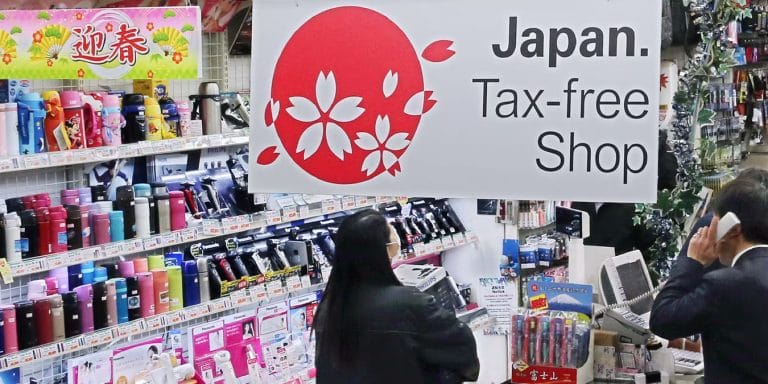🎧 Listen to This Article
Japan may soon close the door on one of its most popular perks for international travelers: tax-free shopping. A group of ruling Liberal Democratic Party (LDP) lawmakers has endorsed a proposal to review and potentially abolish the consumption tax exemption for foreign visitors.
The move, led by LDP heavyweight and former Deputy Prime Minister Taro Aso, signals a broader reevaluation of Japan’s tourism strategy. The group is expected to present its recommendations to LDP tax panel chief Yoichi Miyazawa in the coming weeks, setting the stage for a possible overhaul in the 2026 fiscal reform discussions.
The proposal explicitly targets the rising trend of bulk purchases by inbound travelers, particularly electronics, pharmaceuticals, and cosmetics, in urban centers like Tokyo and Osaka. These transactions are exempt from Japan’s 10% consumption tax, provided they meet certain volume thresholds and are intended for overseas use.
A Perk at Odds with Policy Goals?
While tax-free shopping has long been a magnet for tourists, especially from China and Southeast Asia, lawmakers argue the practice has strayed from its original intent: to encourage tourism spending that contributes meaningfully to the broader Japanese economy.
“The image of a tourism-oriented country we aim for does not align with tourists bulk-buying home appliances and medicines,” the proposal states, adding that the benefits are primarily confined to metropolitan retailers rather than regional communities.
The group further contends that the exemption has minimal impact on rural revitalization or job creation a key policy goal for Japan’s aging and shrinking countryside.
Tourism Recovery and Fiscal Reality
The proposal comes at a delicate time. Japan’s inbound tourism has rebounded strongly post-COVID, with monthly visitor figures surpassing pre-pandemic levels in early 2025. Consumption by foreign travelers has been a bright spot in Japan’s economic recovery and a source of regulatory scrutiny.
Tax authorities have already ramped up enforcement around the exemption following reports of resale abuse and fraudulent claims. In 2023, the National Tax Agency tightened documentation requirements and increased audits of stores offering tax-free purchases.
Yet critics of the LDP proposal caution against removing a key incentive just as Japan seeks to expand its appeal as a global travel destination.
What’s Next?
No final decision has been made, and the proposal still faces debate within the LDP tax committee before it can be incorporated into the 2026 fiscal reform package. However, the momentum behind the review and its backers’ stature suggest significant changes could be on the horizon.
If enacted, the policy would mark a shift from quantity to quality in Japan’s tourism strategy focusing less on high-volume retail transactions and more on regional engagement, cultural experiences, and sustainable travel.
For global retailers operating in Japan and travel industry stakeholders, the message is clear: tax policy is now a central pillar of tourism planning and is increasingly subject to political recalibration.
For further details, clarification, contributions, or any concerns regarding this article, please get in touch with us at editorial@tax.news. We value your feedback and are committed to providing accurate and timely information. Please note that our privacy policy will handle all inquiries.



